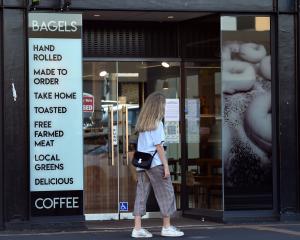
Skyline is listed on the unlisted market, something that some people at the Craigs Investment Partners investor day questioned.
Mr McDonald said the company operated ''under the radar'' most of the time but it was a successful operation with compound growth of about 20%.
Luge operations around the world were part of the recent success of the company, particularly in South Korea.
Asked why Korea, Mr McDonald said the relationship stretched back many years when a former Korean tourism minister visited Skyline in Queenstown.
Earlier this year, Skyline opened its $20 million luge development in South Korea's Tongyeong City to thousands of customers, with Korean social media going into a frenzy. The age range of people using the luge ranged from elderly grandparents to toddlers, he said.
The company recently announced it would spend an estimated $22 million on establishing a second luge in Busan and Mr McDonald suggested another luge might be built outside of Seoul.
Skyline recently announced a $14 million upgrade for Skyline Luge Sentosa, the group's first luge in Southeast Asia.
Mr McDonald was questioned about the competition and how it dealt with copy-cat operators. He got plenty of laughs explaining how his phone would ring with reports from overseas of people spending a lot of time photographing ''family'' at the luge operations or falling over and taking pictures of the underneath of the luge. However, Skyline had built the luges to fit the terrain and kept safety at the forefront.
It was easy to build a luge but keeping it within safety limits was the key to success.
Future development for the company included keeping the Franz Josef Glacier project ''ticking over''. The Department of Conservation had given its support as part of its mandate was to make national parks as open and accessible as possible.
Skyline had the opportunity to create something for a lot of visitors to use without destroying the area, he said.
Residents were supportive as tourism was the heart of their operations.
Some people questioned why it was so difficult to get shares in the company and Mr McDonald said he was still waiting to buy.
The shares last traded at $24.50 and investors needed about $100,000 to buy the minimum parcel, brokers told the Otago Daily Times.
Mr McDonald told the 240 people present so far, the company had been able to grow without resorting to capital raising. It had a ''great relationship'' with its banks.
About 30% of the shares were still held by original families from when the company started 50 years ago.












